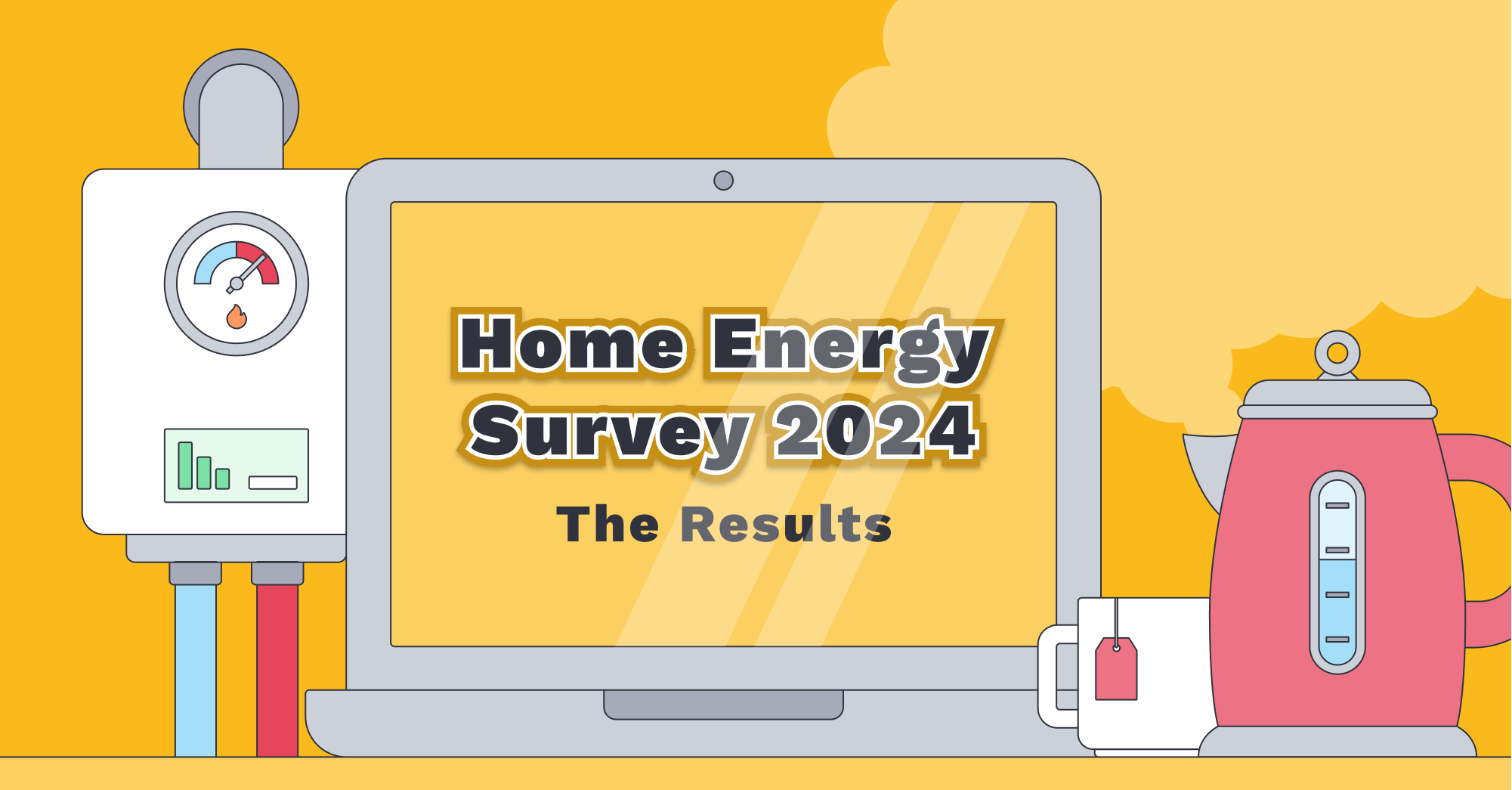Once again, we would like to say a big thank you to everyone who responded to our recent Home Energy Survey. Almost 750 peoples got in touch to tell us about their home energy bills, and how they have changed over the past year.
What we’ve found is that while responses show some easing from record high prices, energy bills remain much higher than a few years ago.
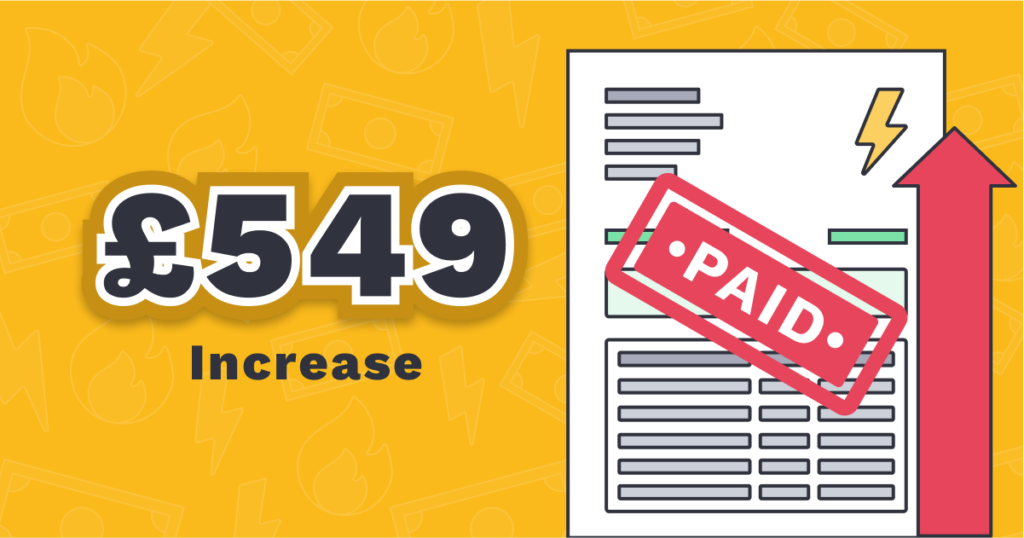
Although the scale of increase has levelled off compared to previous years almost two-thirds of households’ report that their energy bills continued to increase over the last twelve months. The average increase reported is £550, which is slightly lower than 2023, which saw average price hikes of £694. However, taken collectively household energy bills have soared by almost £1,250 over the last two years.
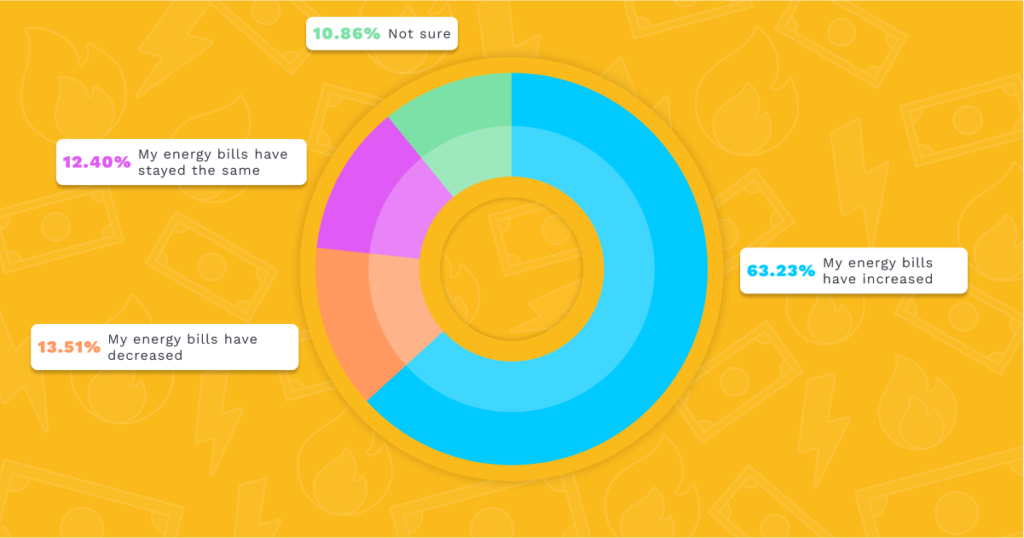
How have people coped with these prices?
Faced with these hikes the majority of people have taken action to reduce their bills whether it is being more careful about their energy use such as turning off lights, unplugging devices (86%), turning off the heating even if the house feels cold (60%) or switching energy supplier (57%).
Despite these efforts which are to be encouraged, it is unlikely these actions in themselves will offset the increases in bills that households face. Indeed, six in ten households have found it more difficult to pay their energy bills over the last twelve months and this includes both bill pay and keypad (‘pay as you go’) customers.
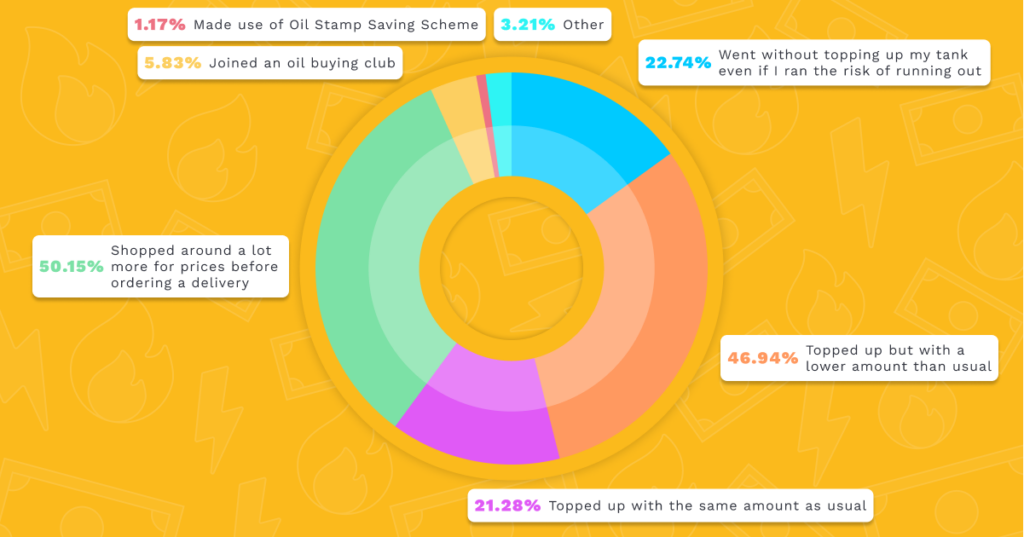
Over the last number of years energy bills soared and households have paid significantly more for their electricity, gas and home heating oil. Despite some recent reductions energy prices remain significantly above where they were pre-Covid and people continue to find it difficult to manage their energy bills.
Six in ten people turned off their heating even when the house was cold (compared to 66% in 2023 and 83% in 2022). This has implications for people who may be vulnerable, older or have specific health needs and may depend on having the heating on in their home. The vast majority (86%) of people are more careful with their energy usage with around 20% of people staying in public places for longer, or having installed energy saving measures.
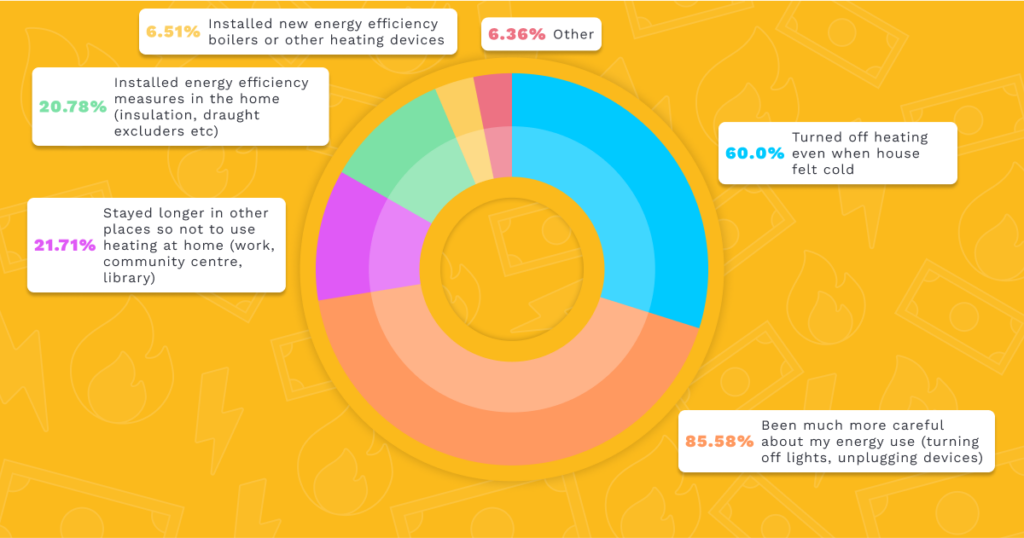
In Northern Ireland most homes, especially those in rural areas rely on home heating oil. Although prices have fallen back since 2022, they remain high in historical terms, and this is impacting on how people fill up their oil tank. Almost half of people topped up with a lower amount that usual (down from 54% in 2023) and shopped around more for quotes. Worryingly just over 20% went without topping up at all (although down from 2023, which was 31%).
Fuel poverty is a key concern across Northern Ireland with ‘self-disconnection’ a specific issue facing keypad customers. This is when credit runs out on a keypad (prepay) gas or electricity meter and the householder cannot afford to top up the meter – they effectively disconnect from supply due to an inability to purchase credit.
Our survey shows that 60% of keypad customers found it difficult to top up this year – slightly down from 66% last year. When asked whether they had ever run out of credit and couldn’t afford to top up right away, 54% said that they did – a similar percentage to last year’s respondents.
It is worrying that 47% of respondents reported that they ran out of credit and had not been able to afford a top up 2–5 times in the previous twelve months, for 18% this happened 6–10 times, and around 10% reported not being able to afford a top-up more than 10 times in the previous twelve months.
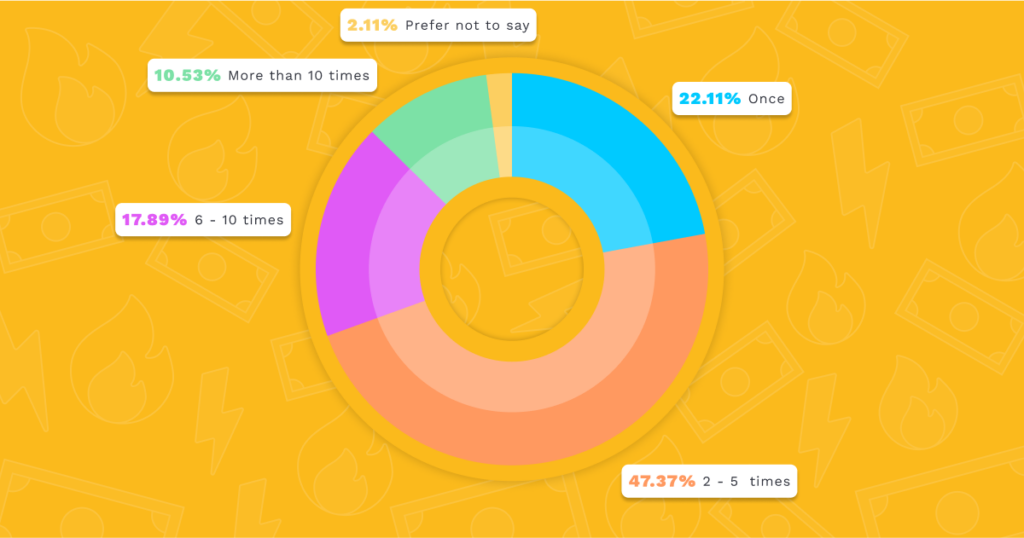
What is the impact of these consistently high prices?
When Power to Switch asked respondents what the impact or biggest concern would be if energy prices were to remain high or increase the most common answer was about struggling to make ends meet.
- “Having to work more shifts to cover the bills, the cost of foods bills, cutting down on non-essentials”
- “Where to get the extra money from, and what I would have to sacrifice to make sure I had heating and electricity in my home’
- “Not being able to pay my bills”
- ‘Less to spend on fun things, eating into savings if want to continue with the same lifestyle’
- Being unable to afford to heat my house. Going into summer it’s less of a concern but later in the year, if there are increases.
- ‘biggest concern is that we will be colder and paying more for it. makes me very concerned’
Other responses included concerns about health:
- “Aggravating my health conditions”
- “As a pensioner who already suffers from poor health, I fear for the future.”
- “That my home heating would never be on and the house would start to go mouldy. I also wouldn’t be able to cook”
- I can’t afford to pay gas or electric. I am disabled and would go without
Comments from Power to Switch
In regard to the findings, Power to Switch’s director Aodhan O’Donnell commented, “It’s a slight relief to see the scale of increases witnessed over previous years starting to drop back. However, energy prices remain high and volatile, and this continues to concern many households who remain fear about the impact of high energy prices.
“As we’ve seen in this survey, there are still lots of people across Northern Ireland experiencing higher bills, struggling to pay or running out of credit on prepay meters. It is clear people are doing what they can to manage energy bills by reducing energy use, trying to be more careful about their energy use but it is difficult to fully offset the increased that have been seen over recent years”.
“It is important to contact your energy supplier if you are struggling. Please also be aware of various grants and schemes available to help cut down costs or simply help financially.
“Taking action is also important. Make sure to compare your energy deal to be sure that you’re not paying more than you have to. Typically, switching your energy supplier every 12 months helps save money – on average people who switched supplier using Power to Switch saved £421.
See if you can save money today by comparing your energy deals in just a few minutes.

